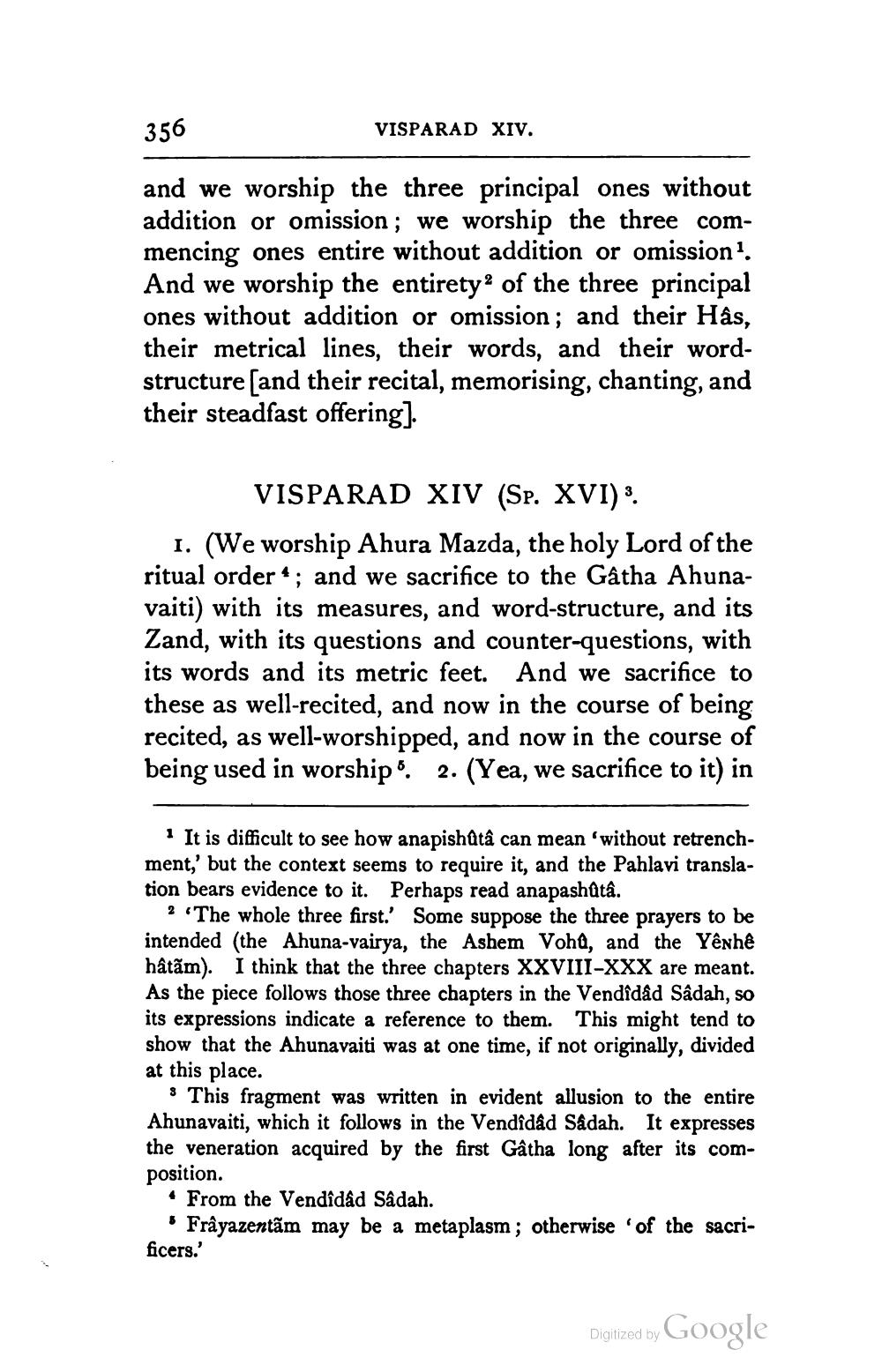________________
356
VISPARAD XIV.
and we worship the three principal ones without addition or omission; we worship the three commencing ones entire without addition or omission'. And we worship the entirety of the three principal ones without addition or omission; and their Hâs, their metrical lines, their words, and their wordstructure [and their recital, memorising, chanting, and their steadfast offering].
VISPARAD XIV (Sp. XVI) 3. 1. (We worship Ahura Mazda, the holy Lord of the ritual order*; and we sacrifice to the Gâtha Ahunavaiti) with its measures, and word-structure, and its Zand, with its questions and counter-questions, with its words and its metric feet. And we sacrifice to these as well-recited, and now in the course of being recited, as well-worshipped, and now in the course of being used in worship. 2. (Yea, we sacrifice to it) in
1 It is difficult to see how anapishûtâ can mean without retrenchment,' but the context seems to require it, and the Pahlavi translation bears evidence to it. Perhaps read anapashûtâ.
2 "The whole three first. Some suppose the three prayers to be intended the Ahuna-vairya, the Ashem Vohd, and the Yênhê hâtām). I think that the three chapters XXVIII-XXX are meant. As the piece follows those three chapters in the Vendidad Sâdah, so its expressions indicate a reference to them. This might tend to show that the Ahunavaiti was at one time, if not originally, divided at this place.
8 This fragment was written in evident allusion to the entire Ahunavaiti, which it follows in the Vendidad Sådah. It expresses the veneration acquired by the first Gâtha long after its composition.
• From the Vendidad Sadah.
* Frâyazentãm may be a metaplasm; otherwise of the sacrificers.'
Digitized by
Digitized by Google




